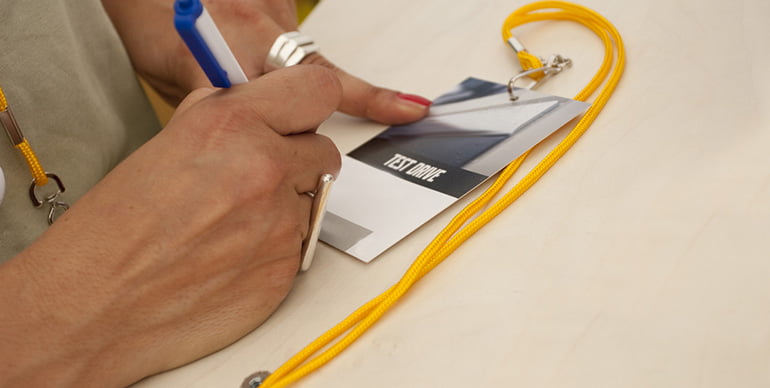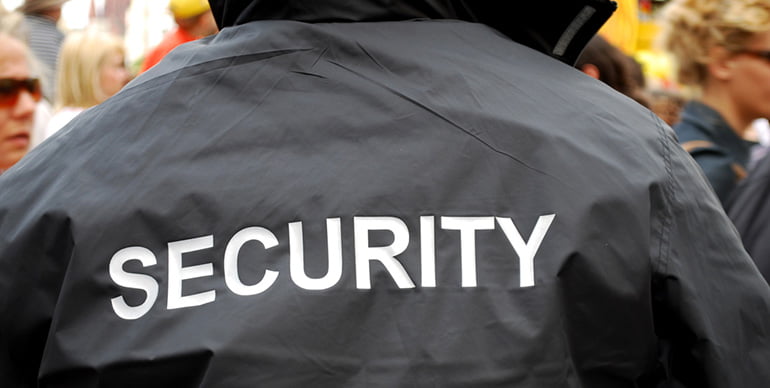You want guests to have a good time at your event. The fun, though, can come to an abrupt halt if someone ends up getting hurt. With an injury comes serious liability issues.
As a planner, it’s your obligation to ensure attendees and guests are able to partake in the activities in a safe environment. Security is of utmost importance and must not ever be overlooked.
1. Choose a Responsible Venue
The venue should provide a safe environment. Scout for the following when determining whether the venue meets safety requirements:
- Ask the venue administrator for records of the last fire and earthquake inspection
- Know where all the exits are. Can those doors be opened from the outside? Is there furniture or other equipment blocking emergency exit doors?
- Are there fire extinguishers located throughout the facility?
- Is there a clear path outside the venue designated for emergency vehicles?
- Can the venue accommodate the expected turnout? Exceeding the maximum occupancy limit can become a fire hazard.
These are the questions you need to be asking a venue administrator. Public facilities are required to follow strict building codes. Be sure the building is up to date and meets city mandates.
This is especially important in the wake of a massive fire at a warehouse in Oakland, CA. The fire broke out during an electronic dance event, leaving multiple attendees dead. As of the date of this writing, the case is still pending, but the building’s owner has confirmed that the venue has not been inspected since he signed the lease three years ago.

2. Check all Guest and Staff for ID
You should have a list of attendees that pre-registered. You should also have a system in place to register walk-in guests on the spot. People that registered should be given an Identification badge of sorts. Anyone without ID that is not company or venue staff should not be allowed to enter the premise. No exceptions.
People who try to enter without ID may simply be party crashers trying to freeload on the event without paying for a ticket. However, there may also be those looking to enter to disrupt the event in some way or cause deliberate bodily harm. Either way, people without ID need to be turned away.
On the subject of checking IDs, all bags should be searched as well. Make it known on the company events page and on all promotional material that ALL bags are subject to a search. This also includes bodily scans using a metal detector.
3. Train Event Staff
Your event staff needs to know how to react in an emergency scenario, both natural and manmade. If the fire alarm goes off, for example, does staff exit the venue with everyone else, or do select members stay behind to ensure exit in a safe and orderly manner?
What about an unruly guest? If he’s not cooperating with staff orders, how do they proceed? At what point does it become appropriate to use physical force to restrain a disorderly guest?
There is also the very serious and scary issue of an active shooter or terrorist attack. This has become an unfortunate reality, and an event with a mass public gathering creates an open opportunity for creating mass casualties. What’s the procedure if an active shooter is suspected of being on the premise or even in an adjacent facility?
4. Prepare for Worst-Case Scenarios
Worst-case scenarios are unlikely to occur, but your staff needs to be ready to respond in the event something goes wrong.
Prepare a backup plan and perform a dry-run with your team before the event. A backup plan may include the following scenarios:
- Creating a designated rallying point for guests in the event of a fire or earthquake.
- Designating a room for treating an injury while awaiting medical arrival
- Designating a room for holding an unruly guest while awaiting police arrival
- Determining who on your staff is CPR-certified or has some other medical training
Each staff member should also have walkie-talkies so they can stay in communication among one another throughout an emergency.

5. Hiring Real Security Personnel
Some event planners limit the security to their own staff with some level of informal security training. It’s recommended, however, that you hire an actual security detail. This includes a team of formerly trained individuals in full uniform and armed with items like zip cuffs, batons, and possibly a firearm. Their presence alone is often enough to deter would-be troublemakers.
The security crew will then be your go-to contact for all emergency situations. The security personnel are the pros here, and all guests and staff will take instructions from them if disaster hits.
Some security services also provide plain-clothing personnel to blend in with the attendees. This allows them to more easily spot suspicious activity. If the security detail includes undercover personnel, be sure your staff recognizes who these people are.
6. Assess the Event
Higher profile events are more prone to disruption. Would you classify your event as high profile? This is something that a trained security team may be able to determine based on factors like location, number of attendees, and nature of event.
If your company or product is met with disapproval from a certain group, for example, then it could be disrupted by protestors who may incite violence. An assessment will determine the level of security you need. If it’s very low risk, then you may not even need professional security and can make do with your own staff.
Security assessment would be a nonissue in a perfect world. Unfortunately, the reality and the times we live in call for security measures to keep guests safe and prevent a productive event from turning into a nightmare.